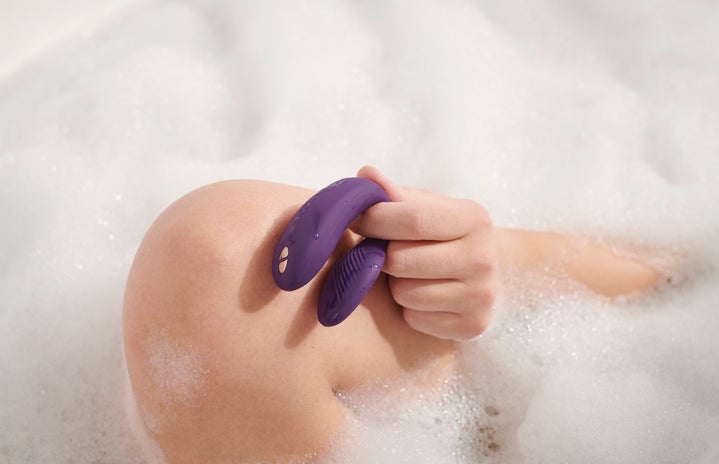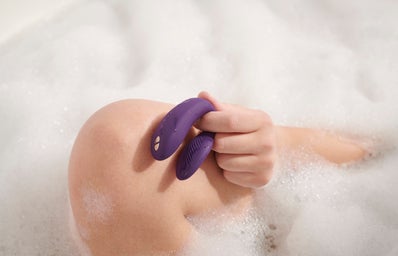Masturbation is a choice. But whether it is a regular part of your sex life or you don’t give it a second thought, it is something that all women should embrace as normal and healthy.
There are certain topics that spark outrage within me and this one really struck a nerve when I read the news last week. When I first saw the headlines, ‘Zoella removed from GCSE media syllabus’ and ‘dropping Zoella’, I was naturally intrigued as to what she may have done, having grown up with her being such a huge influence for young girls. I was stunned when I saw that those words were followed by ‘for covering sexual topics’ and ‘after posting sex toy article’.
For those who perhaps don’t know, Zoe Sugg is a thirty-year old YouTuber, business woman, and influencer. She works alongside a team of women who share a ‘joint passion for other women and subjects relating to this’, according to Zoe herself. They collectively publish a variety of content on the website Zoella, her brand name, for which her primary demographic is 25-35 year old women.
It has been speculated that the decision to remove Zoe’s content from a GCSE Media Studies syllabus came after parents made complaints that the Zoella website contained adult content that was deemed inappropriate and unsuitable for 16 year-olds. And yet, alongside discussing the best sex toys of the year, the Zoella website contains content that covers subjects such as periods, fertility, sex, and revenge porn. To put it simply, this decision only reinforces the idea that female pleasure is shameful, and something that young girls and women should be discouraged from being exposed to.
From menstruation to breast feeding to the female orgasm – female health, hygiene, and pleasure is too frequently scandalised within the media. In short, female pleasure is rarely acknowledged, while the male counterpart is regarded, simply, as a fact of life. A common counter-argument is we know women do it too, there is no need to be so explicit. But, surely that’s the case for sex and male masturbation? So, why does it remain socially unacceptable for women, who are made to feel ashamed for something that men are often applauded for boasting about? The notion that a woman can be sexually liberated contradicts the belief that women’s sexuality is something to be repressed. This further explains why pornography remains legal while prostitution is not.
After revealing that she wasn’t aware that her content was being used by schools, Zoe took to Instagram and addressed the so-called scandal. She writes, ‘We want to talk about taboo subjects, have conversations with experts, ask those less heard to use their voice, and try and have a really varied range of topics to help, inspire, or make people feel less alone’. Zoe further uses her platform to remind her audience that such controversy about female pleasure is the ‘VERY REASON WE WRITE ABOUT IT IN THE FIRST PLACE’.
The exam board have since made a statement that while schools consider sex education vitally important, it remains a subject unsuitable for GCSE Media Studies. And so, the scandal that has unleashed so much controversy has ultimately proposed one question – what is the right age to talk about female masturbation?
According to a 2020 study by Womanizer involving 6,000 participants from 12 countries, only 14% of people think that society accepts female masturbation. Further research conducted by Glamour revealed that 91% of women masturbate, with 54% doing it as a form of stress-relief. And yet, it is the pronounced lack of transparency when it comes to talking about female masturbation that means 53% of women still feel too ashamed and uncomfortable to talk about it.
It is no secret that sex education remains severely lacking in this country, despite being proven that it leads to increased sexual health and well-being, less domestic violence, and healthier gender-dynamics. Young girls in particular are often given a disturbingly uncomfortable and rushed talk in which we’re made to watch as somebody drops a tampon into a glass of water. We’re told that we’ll bleed and most likely have children, before being hurried from the room so quickly that we’re left wondering whether it’s okay to ask further questions. So, while media such as the Zoella website isn’t explicitly aimed at teens, I personally don’t think that this is something they should be prevented from reading about.
What is often brushed over is that it remains perfectly natural to become curious about your own body as you grow, and so, I think that parents would be incredibly naive to assume that their children are unaware of such topics. Surely it is far safer and ethical for teenagers to learn about this from women who are actively combating the stigma, as opposed to the effect of much wider access for women to discover arousal media, often online pornography, which can set harmful and detrimental standards and expectations.
Emily Clarkson has also received praise for her post on Instagram in which she discusses her thoughts, many of which resonated strongly with myself and other young women who became terribly frustrated by the headline. She states that ‘[women] grow into adults with cloudy views of consent, little respect for ourselves, and the ability to only view our bodies and our sexuality through the male gaze as a result’. This was followed by ‘parents ALL OVER THE COUNTRY know that their teenage boys are watching porn and they roll their eyes like OOP BOYS BEING BOYS but when even the notion that their daughters might want the same arises – NO EW GROSS BAD ZOELLA YOU’RE TAKING THEIR INNOCENCE AWAY!’.
As well as enabling women to feel sexually liberated, research has proven that self-stimulation can relieve stress and cramps, improves your sex life, enables you to sleep better, and generally boosts your well-being. Unfortunately, such mental and physical benefits remain unknown to countless women as a consequence of society creating a stigma that is perpetrated by a lack of education and cultural taboos.
Fundamentally, the outpour of debates, backlash, and differing opinions regarding the Zoella headline is only proof that female masturbation is still far from being a component of women’s sexual repertoire that is as normal as it is for men. Despite vibrators now being marketed by condom companies and apps being launched specifically for female masturbation, it frustratingly remains a conversation that is hugely trivialised in public discourse.
In the time of a global health crisis, is this really the news we ought to be greeted with on the front page?


